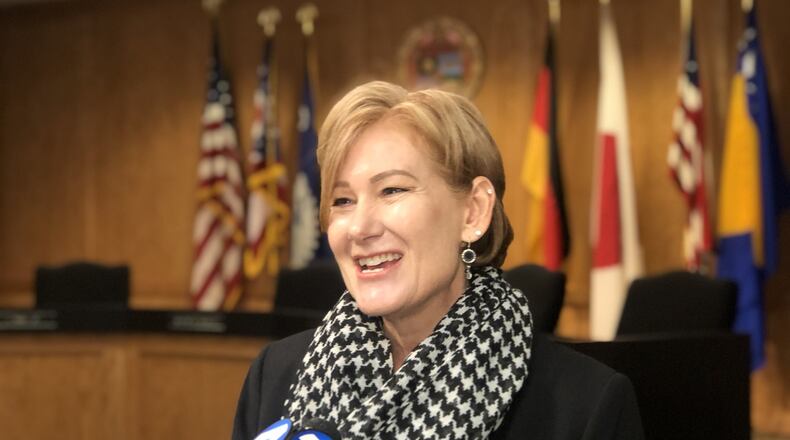But now, Dayton and other local governments are turning to tech companies like ZenCity Technologies LTD to collect data from public social-media sources to try to identify trends and better coordinate communications and resources.
The city uses the data and information ZenCity collects and analyzes to more effectively communicate with citizens and try to address their concerns quickly, City Manager Shelley Dickstein said.
“They are the company that helps us in real time measure sentiment,” she said.
MORE: City of Dayton still determining cause of near catastrophic water outage
Last month, the Dayton City Commission approved a $48,000 contract renewal with ZenCity Technologies. The original $24,000 contract was approved more than a year ago.
Zencity is based in Tel Aviv, but the city’s contract is with ZenCity Technologies in Wilmington, Delaware.
In 2019, there were many incidents in which ZenCity’s work allowed the city manager to get in front of information that could have negatively affected the city or led to the spread of misinformation, according to November memo from LaShea Lofton, Dayton’s finance director.
“ZenCity proved to be a very reliable and resourceful tool to monitor ‘citizen sentiment,’ as it relates to social media communications,” she wrote.
MORE: Dayton blames county contractor for February water outage
Communication with the public was important during the series of crises and tragedies this year, which included the massive water outage, a hate-group rally downtown, the Memorial Day tornadoes and the Oregon District mass shooting, Dickstein said.
ZenCity’s services allows the city to be nimble and tailor its responses when there is misinformation or unmet communication needs, she said.
After a massive water outage in February, some people speculated on Twitter, Facebook and other social media that the water system might have been attacked by a terrorist. Other people online also made wild speculations about what was going on.
They were wrong. In reality, a pipe in the river burst. But in the absence of city communications, some people filled in their own narratives, Dickstein said.
The city assumed it did not need to continue to post updates and information when there was not new information, she said. This turned out to be a mistake, she acknowledged.
Lessons were learned — and months later, after the Oregon District shooting in early August, the city provided a continuous stream of information and far more updates, and also had a better understanding of the kind of content the public wanted and needed, she said.
ZenCity can help out in other ways, too.
After the water system lost pressure, the city asked ZenCity to look for any signs on social media that citizens may have identified the source of the leak, Dickstein said.
MORE: Dayton may use Israeli company to monitor comments on social media
“Usually, if it’s in the ground, it’s a geyser for a few minutes, or there are flooded yards or streets,” she said. “We immediately started tracking to see if anyone was talking about that on social media.”
Social media couldn’t help locate the source of the leak, because it was in the river. It took crews many hours to find the problem, owing to high river levels.
For a long time, governments have only heard from a small fraction of their citizens, ZenCity says. But the company says its services provide governments with a more complete picture of community feelings and needs.
Far more citizens communicate and share their feelings on public social media platforms than write, call or otherwise contact city government.
About the Author

